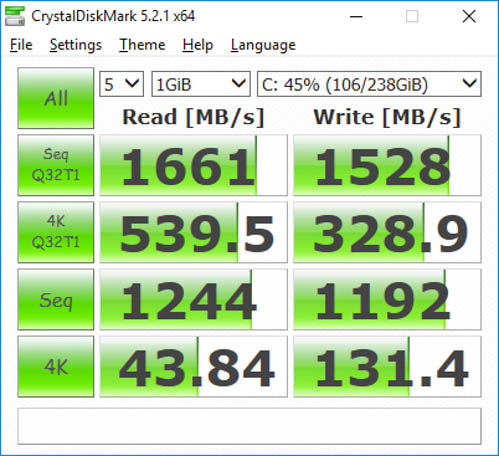
That makes the 256GB model much more desirable as it offers the same read performance as the 512GB model with twice the write performance of the 128GB model. Instead, the write performance has been cut to just 600MB/s.

Those wanting extreme speed on a budget have the 128GB model for $140, the 256GB version costs $240 and the 512GB version (what we have) costs $460, $0.89 per gigabyte.Īlthough the 128GB model is relatively affordable it should be noted that it doesn't have the same 1.5GB/s write performance of the 512GB model. The SM951 is available in three capacities, making it more client-friendly than Intel's SSD 750 Series. Not to worry though, if Samsung's claims are true then the lack of NVMe support shouldn't be too devastating for the SM951 as read speeds are said to reach 2150MB/s and 1500MB/s for writes, which should give the SM951 an advantage in write tests over the Intel SSD 750 1.2TB (2400MB/s and 1200MB/s reads and writes, respectively, using the NVMe driver). The SM951 we are testing today uses the AHCI command set as Samsung pushed the release of the NVMe version likely due to spotty compatibility for NVMe.
Pm951 samsung nvme drivers series#
NVMe support is the key feature of Intel's SSD 750 Series and it's something Samsung initially said the SM951 would have, later dropped, and just recently announced would ship as a separate revision of this drive with the same name. The SSD 750 Series proved to be fast, but also expensive at $1.02 per gigabyte for the 400GB model. We recently reviewed Intel's new SSD 750 Series 1.2TB, a PCI Express SSD that supports the NVMe protocol. That seems reasonable for such a fast M.2 device. The new SM951 PCIe SSD is currently available through Australian company RamCity, and although the drive is listed in Australian dollars on the company's website, it's selling to US customers via Amazon for $460. Nonetheless, the drive has been popular among enthusiasts - popular enough for Samsung to announce a successor last January - though again as an OEM product. To date, no other M.2 device has challenged the XP941, however as attractive as the Samsung XP941 may be, it was meant as an OEM-only product. It wasn't long after the Z97's arrival that Samsung moved to capitalize on the chipset's M.2 support by announcing the XP941, a PCIe 2.0 x4 SSD with top speeds of 1170MB/s reads and 930MB/s writes. That's a big deal in the storage world and we were especially interested in M.2 (formerly 'Next Generation Form Factor' or NGFF).


Last year's Intel Haswell refresh wasn't particularly exciting because of the CPU improvements but because of the new Z97 chipset which brought SATA Express and the M.2 interface to mainstream computing.


 0 kommentar(er)
0 kommentar(er)
